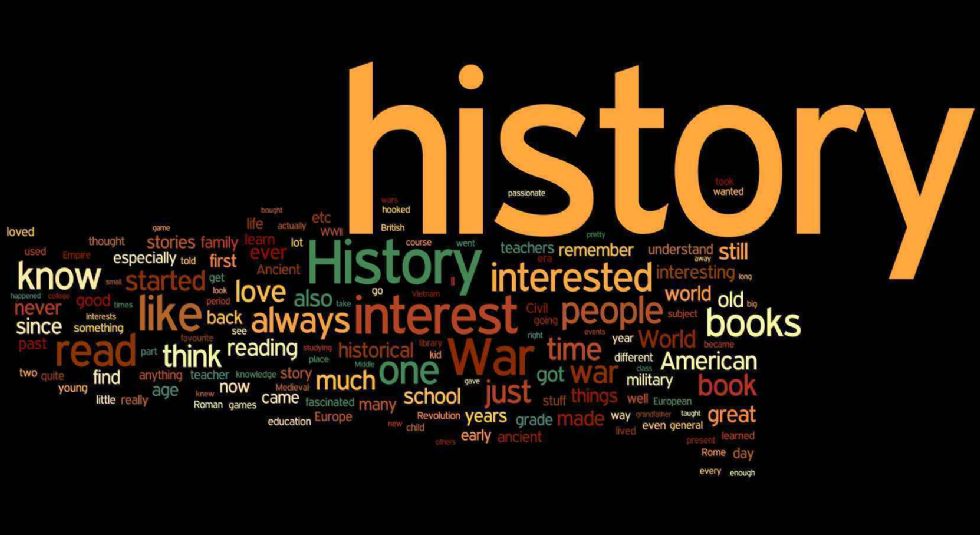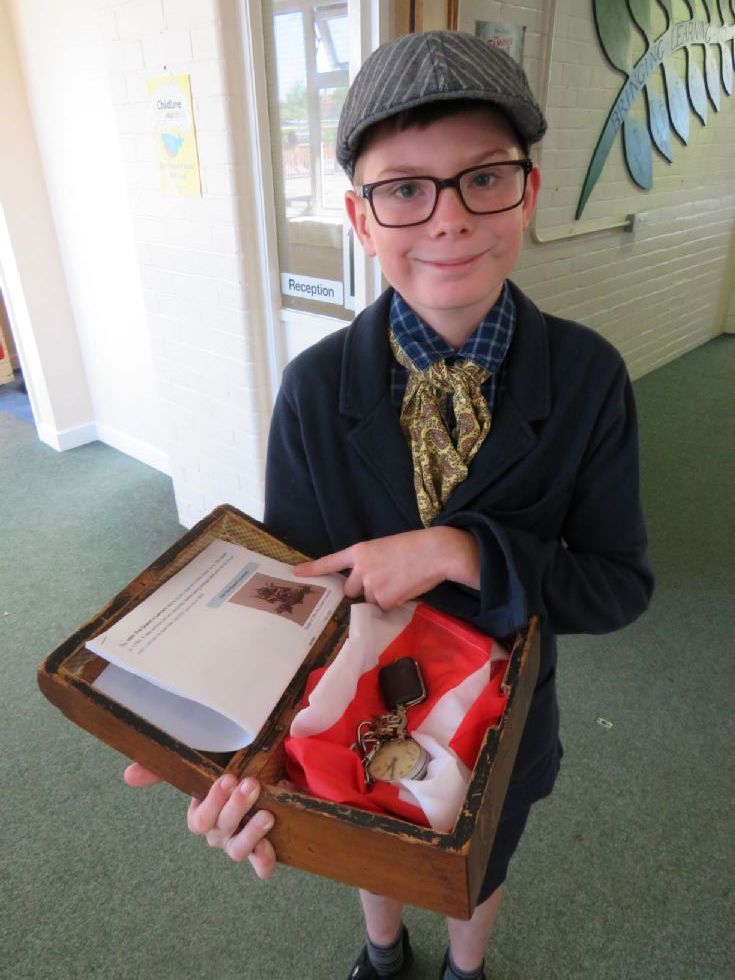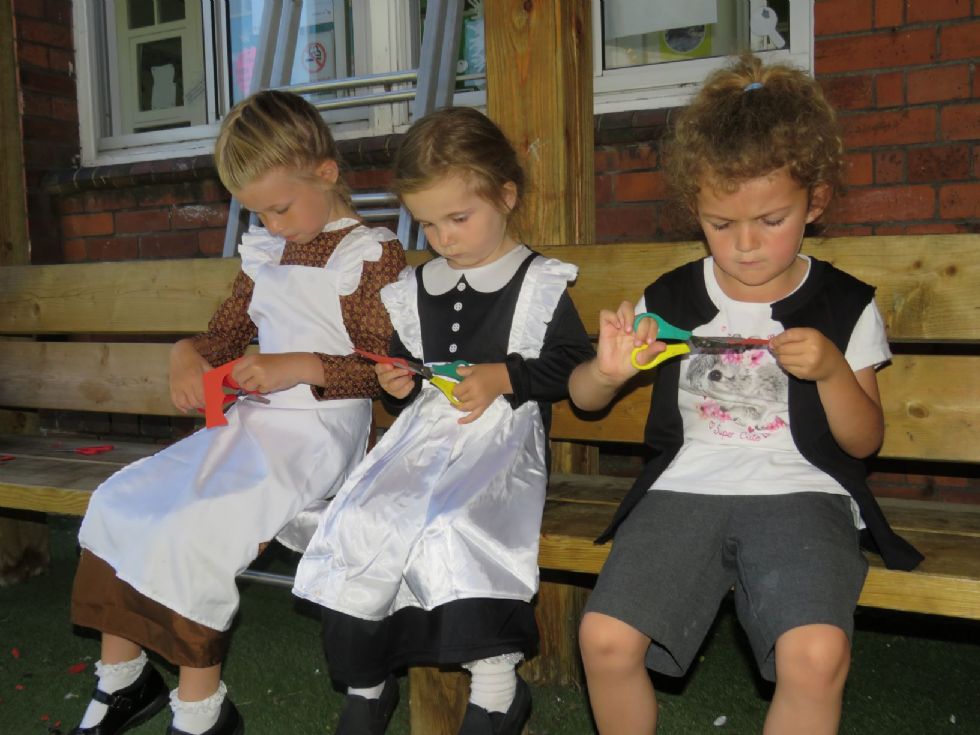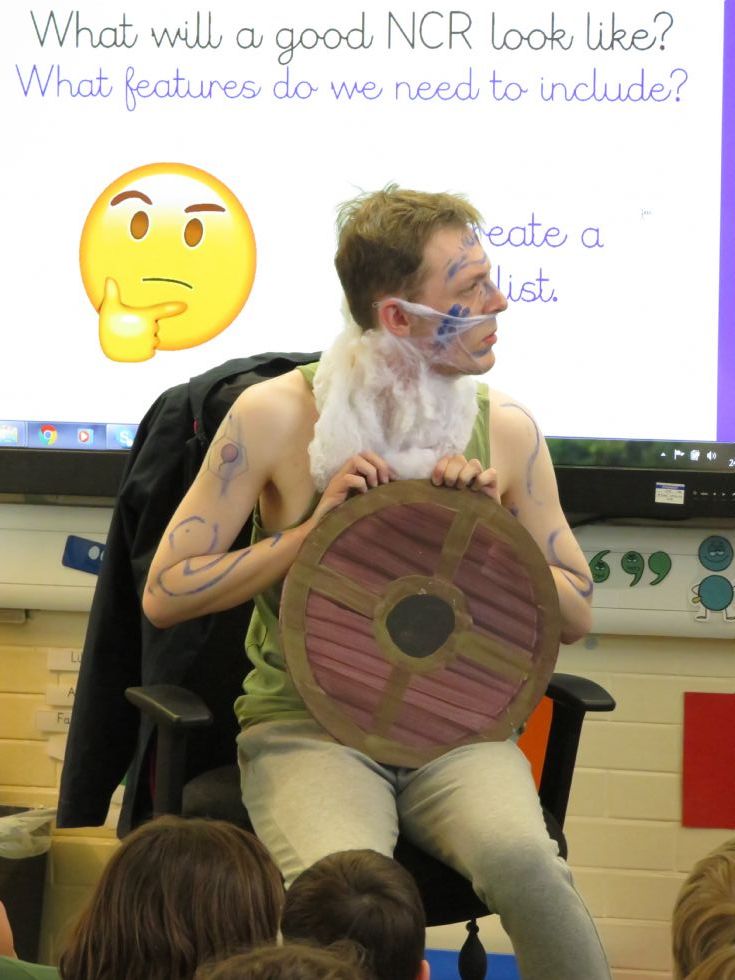History curriculum policy 2023-24
At Ferndale, our history curriculum reflects our overall curriculum vision: providing first-hand experiences; being vocabulary rich; giving purpose; life skills and deepening knowledge. We believe children come into school with their own historical knowledge.
We believe children come into school with their own historical knowledge. They have their personal and natural stories that define who they are and where they come from. These stories join them together in shared experience. Our history curriculum accommodates many histories and we strive to ensure that it is relevant to all the children we teach. History is about real people and real events and, at Ferndale, we personalise history so that the children want to find out and know the people who have walked the streets before them. History and story are inextricably linked and the subject is a powerful tool to engage children’s interest. Through teaching and first-hand memorable experiences, the children look at the past and develop an understanding in relation to historical concepts e.g. identifying similarities and differences. Our curriculum is designed to enable children to increase their historical skills and knowledge by building on what they have previously learnt through a range of themes: chronology; characteristic features of the period, cause and consequence; organisation and communication; interpretations; enquiry; change and continuity. They develop their chronological understanding through a cohesive long-term plan that identifies where different periods of history sit in relation to others. We use enquiry-based learning to explore why things happened the way they did, with the children encouraged to question the evidence and draw conclusions. Our aim is to ensure children develop a strong and secure knowledge and a curiosity about different periods in history that they can apply in a range of subjects and situations in later life.
Our Curriculum map
|
Year Group |
Historical knowledge |
|
|
|
|
FS |
‘All about me’-my life history Baby to now timeline (chronology) Understand there is a past and a future Learning about dinosaurs & the woolly mammoth (ice age), fossils and rocks (pictorial timeline) |
Traditional tales: jack and the beanstalk, three billy goats gruff, Little red hen, three little pigs, Hansel & Gretel
|
Other related stories: fossils tell of a long time ago, we went to find a woolly mammoth, the dinosaur diary |
|
|
1 |
|
Great Fire of London |
Scott of the Antarctic (make links to geography) |
Local Study – Changes within living history |
|
2 |
Walter Tull |
Ibn Battuta (within this unit NC obj: compare aspects of life in different places build in comparison of explorers Scott of the Antarctic to Ibn Battuta national and international achievements - Y1) |
Mary Anning |
Gunpowder Plot (LO focus – significance nationally) |
|
3 |
Stone Age to Iron Age |
Ancient Egypt |
Local study – Ferndale |
|
|
4 |
The Roman Empire and its Impact on Britain (towards end of topic focus on withdrawal from Britain – link to next topic) |
Anglo Saxons and Scots (up to Viking invasion) |
Viking and Anglo Saxon struggle for the Kingdom of England to the time of Edward the Confessor |
|
|
5 |
Aspect of British history beyond 1066: The Tudors – the changing power of monarchs (War of the Roses 1455-1485 between the House of Lancaster – white rose and House of York Red Rose. Richard III was defeated by Henry Tudor (York) in 1485 and secured the throne and became Henry VII), HVII secured peace, secured succession, taxed land owners and made throne wealthy, becomes head of the church and Eng religion Church of Eng) |
Aspect of British history beyond 1066: STEAM – Brunel and the railways |
Minor Focus –Achievements of the earliest civilisations – an overview of where and when the first civilisations appeared - Ancient Sumar, The Indus Valley, Ancient Egypt, The Shang Dynasty of Ancient China
|
In-depth study of Non-European civilisation – Maya - Make contrast with British History at the time: Ango Saxons and Viking kings (make links to geography of South America and Earthquakes)
|
|
6 |
Aspect of British history beyond 1066: WWII include Battle of Britain as well as Blitz
(Local Link – Harold Starr is a Swindon Battle of Britain squadron leader – see Swindon Heritage magazine Summer 2015. Vickers factory built the Spitfire used in BoB (1000 of them in total) – see Swindon Heritage Magazine Summer 2014 |
Ancient Greece – Greek life, achievements and impact on western world |
|
|
Aims
The national curriculum for history aims to ensure that all pupils:
- know and understand the history of these islands as a coherent, chronological narrative, from the earliest times to the present day: how people’s lives have shaped this nation and how Britain has influenced and been influenced by the wider world
- know and understand significant aspects of the history of the wider world: the nature of ancient civilisations; the expansion and dissolution of empires; characteristic features of past non-European societies; achievements and follies of mankind
- gain and deploy a historically grounded understanding of abstract terms such as ‘empire’, ‘civilisation’, ‘parliament’ and ‘peasantry’
- understand historical concepts such as continuity and change, cause and consequence, similarity, difference and significance, and use them to make connections, draw contrasts, analyse trends, frame historically-valid questions and create their own structured accounts, including written narratives and analyses
- understand the methods of historical enquiry, including how evidence is used rigorously to make historical claims, and discern how and why contrasting arguments and interpretations of the past have been constructed
- gain historical perspective by placing their growing knowledge into different contexts, understanding the connections between local, regional, national and international history; between cultural, economic, military, political, religious and social history; and between short- and long-term timescales.
Attainment Targets
By the end of each key stage, pupils are expected to know, apply and understand the matters, skills and processes specified in the relevant programme of study.
Subject Content
Key Stage 1
Pupils should develop an awareness of the past, using common words and phrases relating to the passing of time. They should know where the people and events they study fit within a chronological framework and identify similarities and differences between ways of life in different periods. They should use a wide vocabulary of everyday historical terms. They should ask and answer questions, choosing and using parts of stories and other sources to show that they know and understand key features of events. They should understand some of the ways in which we find out about the past and identify different ways in which it is represented.
In planning to ensure the progression described above through teaching about the people, events and changes outlined below, teachers are often introducing pupils to historical periods that they will study more fully at key stages 2 and 3.
Pupils should be taught about:
- changes within living memory. Where appropriate, these should be used to reveal aspects of change in national life
- events beyond living memory that are significant nationally or globally [for example, the Great Fire of London, the first aeroplane flight or events commemorated through festivals or anniversaries]
- the lives of significant individuals in the past who have contributed to national and international achievements. Some should be used to compare aspects of life in different periods [for example, Elizabeth I and Queen Victoria, Christopher Columbus and Neil Armstrong, William Caxton and Tim Berners-Lee, Pieter Bruegel the Elder and LS Lowry, Rosa Parks and Emily Davison, Mary Seacole and/or Florence Nightingale and Edith Cavell]
- significant historical events, people and places in their own locality.
Key Stage 2
Pupils should continue to develop a chronologically secure knowledge and understanding of British, local and world history, establishing clear narratives within and across the periods they study. They should note connections, contrasts and trends over time and develop the appropriate use of historical terms. They should regularly address and sometimes devise historically valid questions about change, cause, similarity and difference, and significance. They should construct informed responses that involve thoughtful selection and organisation of relevant historical information. They should understand how our knowledge of the past is constructed from a range of sources.
In planning to ensure the progression described above through teaching the British, local and world history outlined below, teachers should combine overview and depth studies to help pupils understand both the long arc of development and the complexity of specific aspects of the content.
Pupils should be taught about:
- changes in Britain from the Stone Age to the Iron Age
- the Roman Empire and its impact on Britain
- Britain’s settlement by Anglo-Saxons and Scots
- the Viking and Anglo-Saxon struggle for the Kingdom of England to the time of Edward the Confessor
- a local history study
- a study of an aspect or theme in British history that extends pupils’ chronological knowledge beyond 1066
- the achievements of the earliest civilizations – an overview of where and when the first civilizations appeared and a depth study of one of the following: Ancient Sumer; The Indus Valley; Ancient Egypt; The Shang Dynasty of Ancient China
- Ancient Greece – a study of Greek life and achievements and their influence on the western world
- a non-European society that provides contrasts with British history – one study chosen from: early Islamic civilization, including a study of Baghdad c. AD 900; Mayan civilization c. AD 900; Benin (West Africa) c. AD 900-1300.
Websites to support History:
Click here to access the BBC website for KS2 history learning resources.
Click here to access the BBC website for games and activities linked to History, including for the younger age groups.




